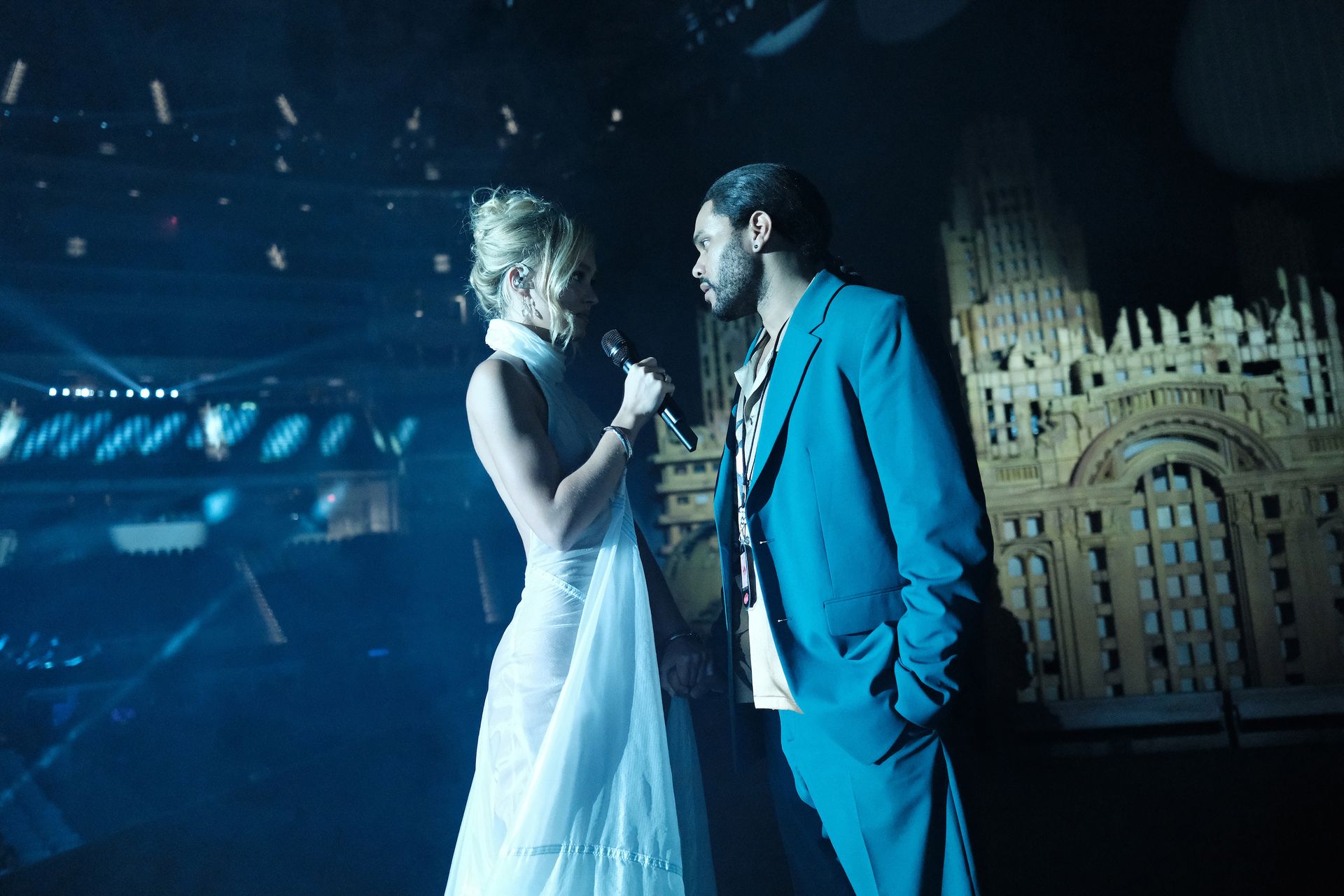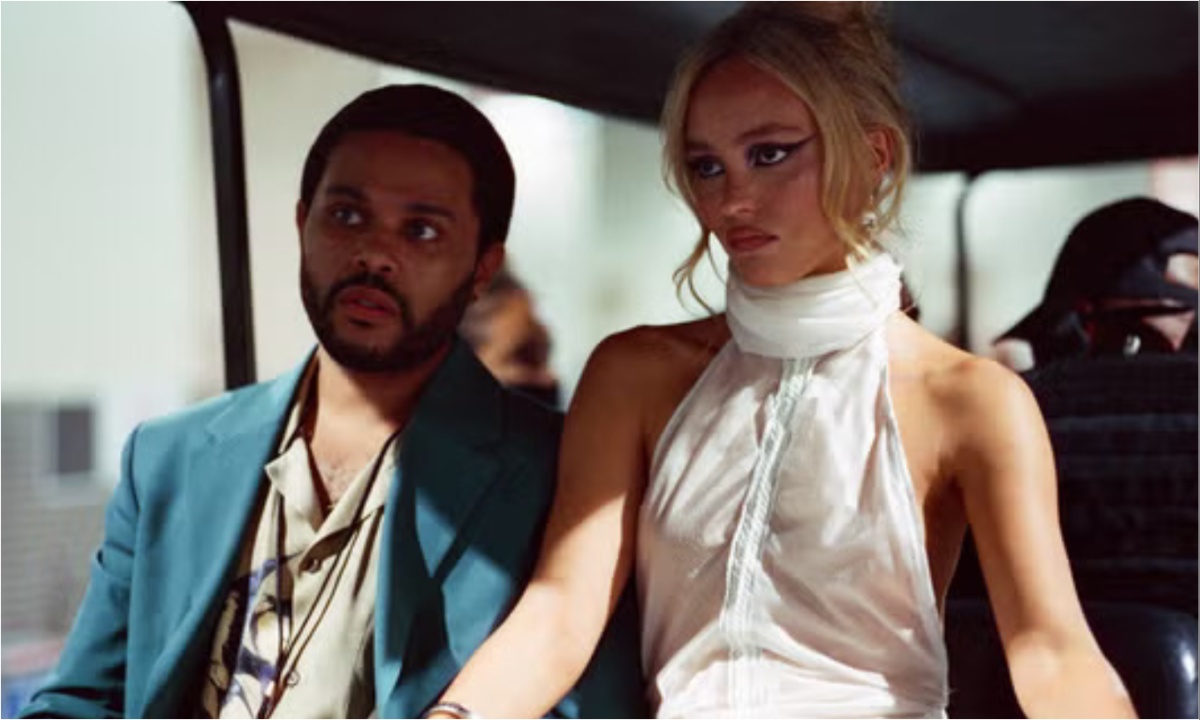HBO’s miniseries The Idol, created by Sam Levinson and The Weeknd (real name Abel Tesfaye), wrapped up its five-episode run with a finale that left audiences with more questions than answers. The show, initially marketed as a daring critique of the music industry’s toxic dynamics, veered off course into sensationalism and uneven storytelling, culminating in a conclusion that has sparked widespread confusion.
Jocelyn, played by Lily-Rose Depp, ends the series as a global pop icon who seemingly manipulates her former captor, Tedros, into submission. Yet, the journey to this point feels fragmented and unearned, reflecting the show’s broader struggles with coherence and depth.
The Idol began with an intriguing premise: an ambitious exploration of the intersection of fame, exploitation, and artistry. However, from the very start, the series struggled to fulfill its promise. Early criticisms, including a Rolling Stone exposé and polarizing reactions from Cannes, characterized the show as exploitative rather than thought-provoking.
While the first episode hinted at a sharp critique of the sexist power dynamics within the music industry, the series quickly descended into lurid sensationalism. Across its five episodes, it often prioritized shock value over meaningful storytelling, relying heavily on explicit scenes and perpetuating the harmful idea that great art is rooted in pain and abuse.

The Finale: Jocelyn’s Transformation
The final episode centers on Jocelyn taking control of her narrative and breaking free from Tedros’ grip. The episode opens with Jocelyn in a recording session with producer Mike Dean (playing himself), completing a song that reflects her relationship with Tedros. When Tedros arrives and attempts to assert control, Jocelyn confronts him directly.
She accuses him of being a “con man and fraud” and exposes his long-standing obsession with her, which began during his prison days. Jocelyn’s declaration of independence seems intended to mark a triumphant turning point for her character, but the abruptness of her transformation leaves viewers puzzled.
This moment, while pivotal, feels disconnected from Jocelyn’s earlier behavior. Her sudden shift from victim to manipulator lacks sufficient buildup, particularly given her apparent infatuation with Tedros in prior episodes. This abruptness raises questions about the show’s re-editing process, which condensed six episodes into five, potentially cutting key scenes that could have provided crucial context.
After asserting her dominance over Tedros, Jocelyn turns her attention to the artists he cultivated within his cult-like entourage. Chloe (Suzanna Son), Izaak (Moses Sumney), and Ramsey (singer-songwriter Ramsey) become central to Jocelyn’s vision for her upcoming tour.
She convinces her team that these artists should be her opening acts, effectively sidelining Tedros. Jocelyn’s ability to seamlessly take over Tedros’ role as the leader of this group underscores her growing power. Yet, lingering tensions with other characters, such as Xander (Troye Sivan) and Leia (Rachel Sennott), hint at unresolved dynamics that the series fails to fully explore.
In a chaotic industry showcase orchestrated by Jocelyn, tensions between her and Tedros come to a head. Jocelyn’s team, including Live Nation executive Andrew Finkelstein (Eli Roth) and record label exec Nikki Katz (Jane Adams), gathers at her home to evaluate her vision for the tour.
Tedros attempts to disrupt the proceedings by encouraging his cult members to seduce the industry professionals, but his efforts are undercut by his diminishing influence. Jocelyn’s calculated performances, both musical and personal, ultimately win over the room, solidifying her control.
However, Tedros’ lingering power over Xander complicates matters. Xander, harboring resentment toward Jocelyn for sidelining his singing career, uses this opportunity to reassert himself. Meanwhile, Leia becomes increasingly disillusioned with Jocelyn, especially after learning about a scheme orchestrated by Tedros and Xander to frame Rob, Jocelyn’s ex-boyfriend, for sexual assault. The showcase devolves into a tense confrontation, further exposing the fractures within Jocelyn’s inner circle.

Tedros’ Last Stand
Despite his waning influence, Tedros attempts one final act of defiance by leveraging the scandal involving Rob. Jocelyn quickly deduces his involvement and confronts him, demanding he leave her life for good. Her team offers him a substantial payoff to disappear, but Tedros rejects the money, suggesting he still harbors a twisted attachment to Jocelyn. This moment underscores the complexity of their toxic relationship, though it does little to resolve the broader narrative threads left dangling by the show.
Six weeks later, Jocelyn has achieved the superstardom she and her team envisioned. She releases three hit singles, sells out her tour, and prepares to perform at a stadium filled with 70,000 fans. Meanwhile, Tedros’ life has unraveled; he loses his club and his following, and an exposé details his history of abuse and exploitation. Despite this, Jocelyn leaves a pass for Tedros to attend her concert, setting the stage for a surprising reunion.
Tedros arrives backstage at Jocelyn’s concert, where their reunion takes an unexpected turn. Jocelyn appears to welcome him back into her life, even calling him the “love of [her] life.” However, her behavior suggests she is fully in control. Her enigmatic smile and cryptic remarks about her past imply she has been manipulating Tedros—and possibly everyone else—all along. This revelation casts doubt on the authenticity of her backstory, including her claims of maternal abuse, leaving viewers questioning the true nature of her character.
The series concludes with Jocelyn introducing Tedros to her audience before sidelining him once again. Her declaration that he is “mine forever” followed by an order for him to stand aside cements her dominance over him. While this moment is intended to signify Jocelyn’s ultimate empowerment, it feels hollow due to the lack of narrative buildup and the unresolved questions surrounding her journey.
Missed Opportunities and Critical Backlash
The Idol aimed to deliver a provocative commentary on fame, exploitation, and the music industry but fell short of its ambitions. The show’s reliance on explicit content and sensationalism often overshadowed its thematic goals.
Characters like Tedros lacked depth, and the series failed to provide a cohesive narrative for Jocelyn’s transformation. Critics and viewers alike have criticized the show for its shallow storytelling, describing the finale as emblematic of its broader shortcomings: aesthetically extravagant but narratively empty.
Ultimately, The Idol is a show defined by its contradictions. Its striking visuals and ambitious premise were undermined by disjointed storytelling and underdeveloped characters. The finale encapsulates these issues, offering a spectacle that leaves viewers unsatisfied and confused. While Jocelyn’s rise to power may serve as the series’ central arc, the lack of emotional resonance and narrative clarity ensures that The Idol will be remembered more for its controversy than its content.



